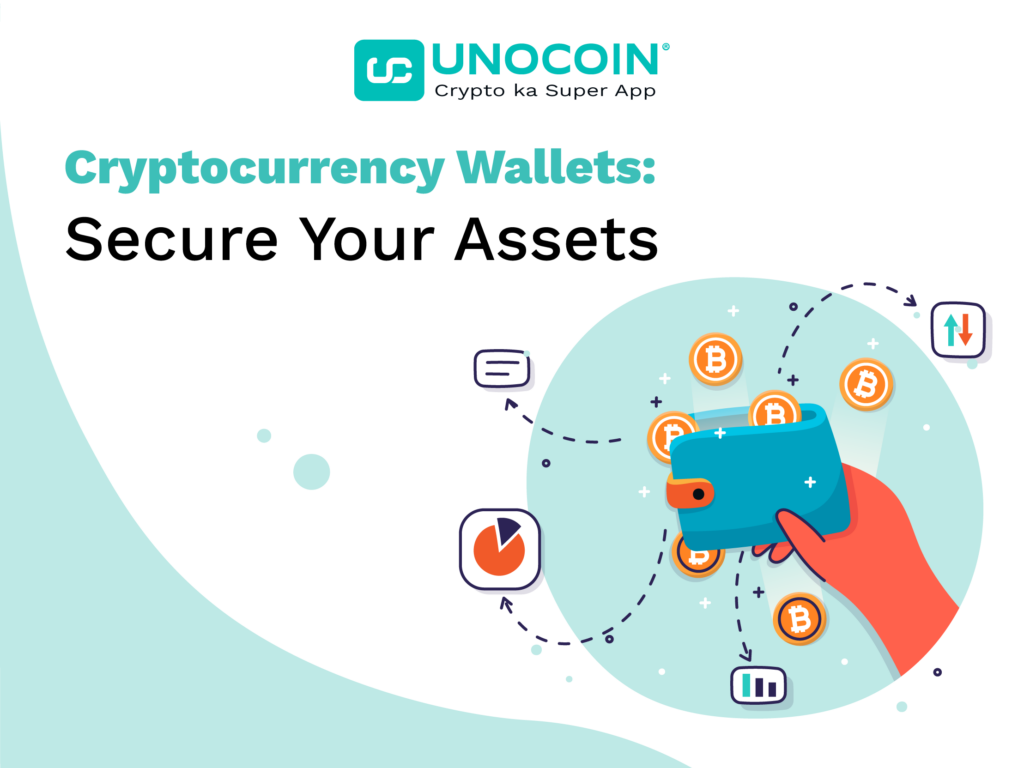An Introduction to Cryptocurrency Wallets: Protecting Your Assets
Cryptocurrency wallets are essential tools for securely storing, managing and accessing your digital assets. Unlike traditional wallets that hold physical cash and cards, cryptocurrency wallets store private keys that are necessary to access and control your cryptocurrencies on the blockchain. Understanding the different types of wallets and their security features is essential to keeping your valuable assets safe in the fast-paced and ever-evolving world of cryptocurrencies.
Types of Cryptocurrency Wallets
Hardware Wallets:
Hardware wallets are physical devices specifically designed to store your private keys offline. They provide an additional layer of security by isolating keys from internet-connected devices, reducing the risk of hacking and malware attacks. Popular hardware wallets include Ledger and Trezor. Users can access their resources when needed by connecting the device to a computer or mobile device.
Software Wallets (Desktop/Mobile):
Software wallets come in the form of apps that can be installed on desktop computers or mobile devices. They offer convenience and ease of access but can be more susceptible to security breaches if the device is compromised. Examples of software wallets include Exodus (desktop) and Trust Wallet (mobile).
Web Wallets:
Web wallets operate on web platforms and are accessible through internet browsers. They provide convenient access to your funds from anywhere but can carry higher security risks because they store your private keys on remote servers. For added security, it is important to choose reputable web wallet providers and enable two-factor authentication.
Paper Wallets:
Paper wallets are physical documents that contain printed QR codes or private keys that allow you to store your cryptocurrencies offline. They are immune to hacking but are susceptible to physical damage or loss if not stored properly.
Safety Precautions and Best Practices
Strong passwords:
Always use strong and unique passwords for your wallets that consist of a combination of upper and lower case letters, numbers and special characters.
Two-Factor Authentication (2FA):
Enable 2FA whenever possible to add an extra layer of security. This requires a second verification method, such as a one-time code sent to your phone, to access your wallet.
Back up your wallet:
Regularly back up your wallet’s private keys or seed phrases to an offline device or physical paper to protect against data loss or hardware failure.
Keep your software updated:
Make sure your wallet software and operating system are up-to-date to benefit from the latest security patches and improvements.
Beware of Phishing:
Beware of phishing attempts, where malicious actors try to trick you into revealing your private keys or passwords. Always verify the legitimacy of websites and links before entering sensitive information.
Diversification and Risk Managemen
To further secure your assets, consider diversifying your cryptocurrency holdings into multiple wallets. For significant amounts of cryptocurrencies, prefer hardware wallets or offline solutions for maximum security. Additionally, allocate only a portion of your holdings to hot wallets (online wallets) for daily transactions, keeping the majority in cold storage for long-term security.
Conclusion
Cryptocurrency wallets are indispensable tools for anyone navigating the world of digital assets. By understanding the different types of wallets and implementing robust security measures, you can protect your assets and enjoy the benefits of owning and managing cryptocurrencies with confidence. Be sure to stay up-to-date on the latest security practices and keep up-to-date with developments in the field to ensure the long-term safety of your valuable cryptocurrencies.
Please find the list of authentic Unocoin accounts for all your queries below:
- YouTube Channel: https://www.youtube.com/c/Unocoin/videos
- Newsletter: https://medium.com/subscribe/@Unocoin_growth
- Blogs: https://blog.unocoin.com
- Instagram: https://www.instagram.com/unocoin/
- Twitter: https://twitter.com/Unocoin
- Facebook: https://www.facebook.com/unocoin/
- LinkedIn: https://in.linkedin.com/company/unocoin
- Telegram Group: https://t.me/Unocoin_Group
- Telegram Channel: https://t.me/+fasQhTKBsfA5N2Zl
- Telegram: https://t.me/UnocoinSupport_Bot
- E-mail id: support@unocoin.com
- Contact details: 7788978910 (09:30 AM IST – 06:30 PM, Mon – Sat)
- App store link: https://apps.apple.com/us/app/unocoin/id1030422972?ls=1
- Playstore link: https://play.google.com/store/apps/details?id=com.unocoin.unocoinwallet
Disclaimer: Crypto products are unregulated as of this date in India. They could be highly volatile. At Unocoin, we understand that there is a need to protect consumer interests as this form of trading and investment has risks that consumers may not be aware of. To ensure that consumers who deal in crypto products are not misled, they are advised to DYOR (Do Your Own Research).

